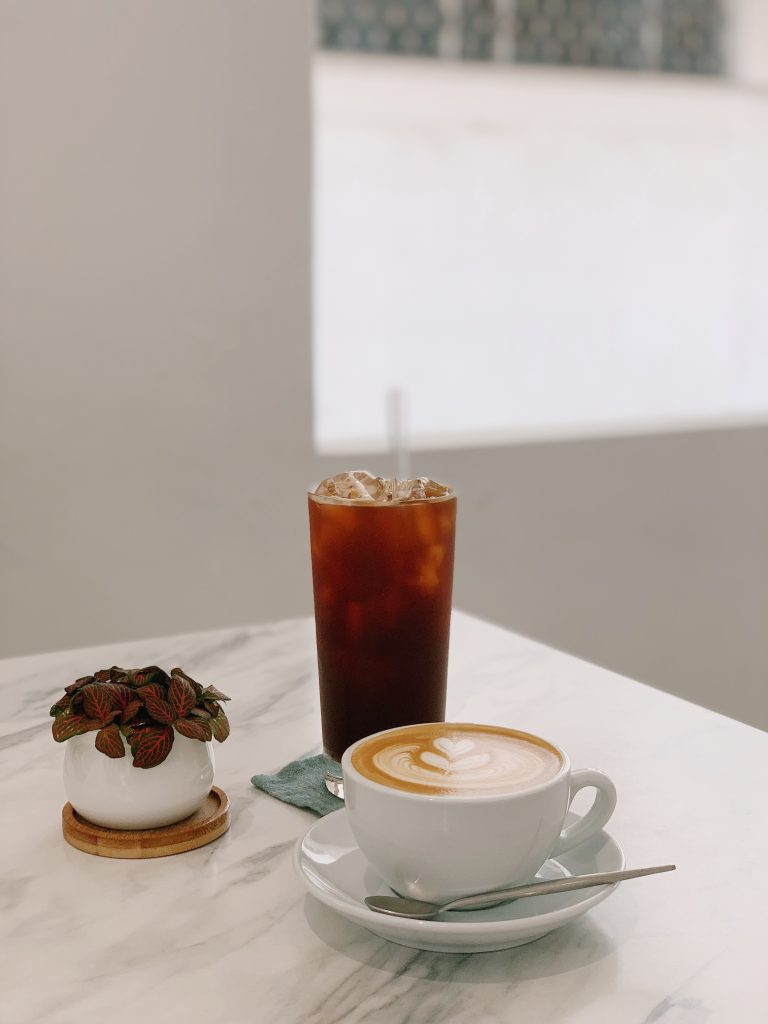Contact the owner directly for motivational support!
All coffee ships fast and free!
Coffee roasted the day before shipping!
Cart
No products in the cart.

admin
What Differs Cold Brew from Iced Coffee?
- ,
- , Uncategorized
What Differs Cold Brew from Iced Coffee?
There is only one beverage that sounds wonderful on the hottest summer days: cold coffee. So which is better, cold brew or iced coffee? And what distinguishes these cool beverages from one another?
We’re here to address any of your pressing inquiries about cold coffee beverages. We’re examining the distinctions between two well-known café drinks closely, from the brewing process to the taste. Let’s compare iced coffee vs. cold brew.
How Are They Made: The Brewing Process?
The method used to produce each beverage is the primary distinction between cold brew and iced coffee. One is conventional coffee poured over ice, as the names imply, while the other is chilly the whole time.
Rough coffee grounds are steeped in cold water for 12 to 24 hours to create a cold brew.
Coffee that has been traditionally made and then poured over ice is known as iced coffee. You brew it by using any brewing technique with hot coffee. This hot coffee may be chilled or brewed immediately over ice.
So why do various brewing techniques produce diverse tastes, and what precisely happens in them? Time and temperature variations have an impact on the final cup of coffee.
The element of time
Simply put, “extraction” refers to the process of extracting taste from coffee beans, which is impacted by a wide range of variables. Time is most noteworthy, however. The length of time spent brewing may have a significant impact on the taste that emerges from the coffee beans since the various flavor compounds in coffee beans extract at various rates.
The steeping process for cold brew takes somewhere between 12 and 24 hours. You want the coffee grounds to be coarsely ground since you’ll be soaking them in water for such a long time. A bitter cup of coffee might come from over-extracting the beans if you ground the beans too finely.
You should often use more finely ground beans for iced coffee since it can be prepared much more rapidly, typically in just a few minutes. Hot water is another element on which this technique is dependent.
The other important element in making coffee is water temperature. The extraction will proceed more quickly the hotter the water is, as a general rule. Consider this: if you used a drip coffee maker or a pour-over to brew coffee, cold water would just barely tint the liquid brown. Yet, if you let that chilly water sit on your grounds for many hours, you’ll get a tasty cold brew.
Because of this, hot water is required to produce iced coffee. You’ll need cold or room-temperature water to prepare a cold brew.
What Do They Taste Like, Flavor-Wise?
These elements all have an impact on how soon taste is extracted from coffee beans. Consider a spectrum of intensities: there is espresso, which has high pressure and temperature for a very short period of time; traditional drip coffee, which has low pressure but high temperature for a longer period of time; and finally, our magical cold brew, which is at the very end of the spectrum.
Low temperature, low pressure, and a lot of time are the three main components of cold brew. Because of this, the final flavor might vary greatly from other cooking techniques. The cold brew technique may access even the most difficult-to-reach taste components in coffee beans since it depends on a protracted and prolonged extraction phase. Of course, they are the silky, sweet, chocolaty overtones.
We all know and adore the sweet, rich flavor of cold brew, which is mellow and nuanced. In addition to having a distinct flavor, cold brew coffee may contain more caffeine than regular iced coffee. More caffeine is extracted from the beans during a longer extraction time.
Furthermore, how does iced coffee taste? The extraction proceeds considerably more quickly because of the high heat, and the resultant taste components are strong, bitter, and acidic. Less of the characteristic mellow flavor and more of the classic coffee flavor will be present.
Many coffee consumers like the sharp bitterness of well-brewed iced coffee, and if frozen enough, all of these delectable fruity overtones may be sealed into iced coffee. It’s not as smooth or distinctive, but many coffee drinkers adore it.
The Verdict on Iced Coffee vs. Cold Brew
You’ll be ready the next time you have to decide between cold brew and iced coffee! Why not consider your alternatives and contrast the tastes of these distinctive drinks? You could discover that you really prefer one over the other, or you might simply be aware that certain days call for a cold brew, and other days call for a tasty iced coffee.



